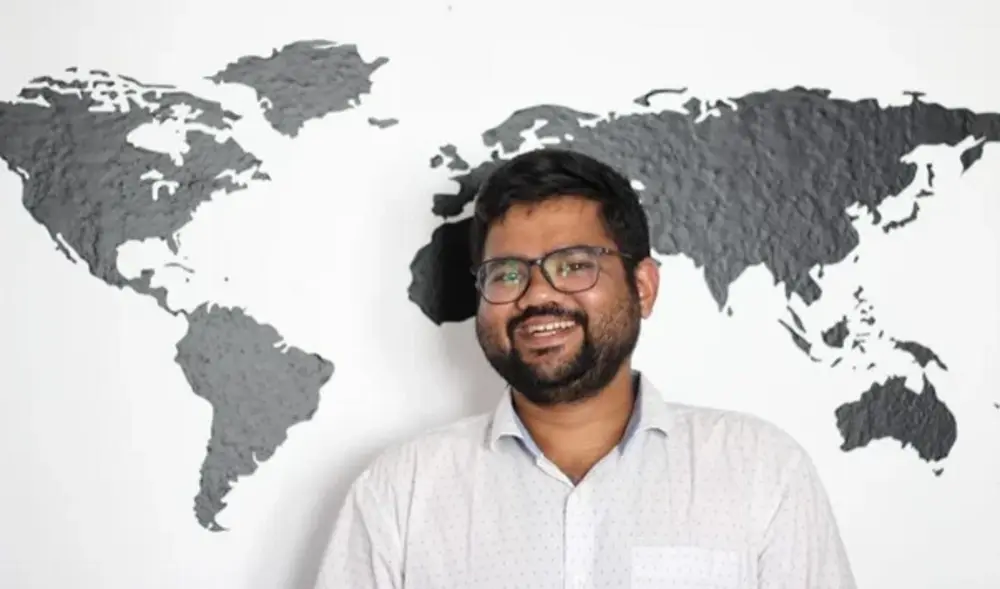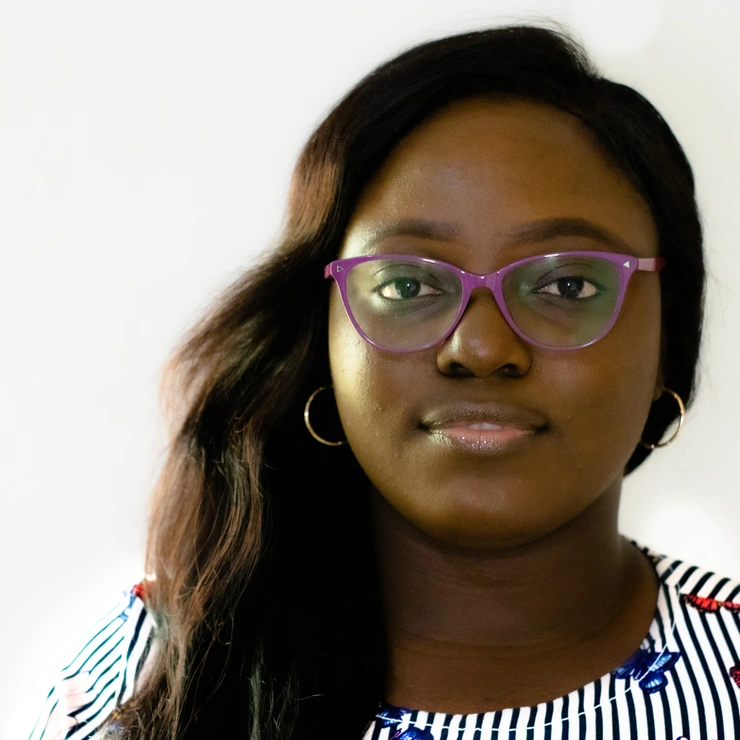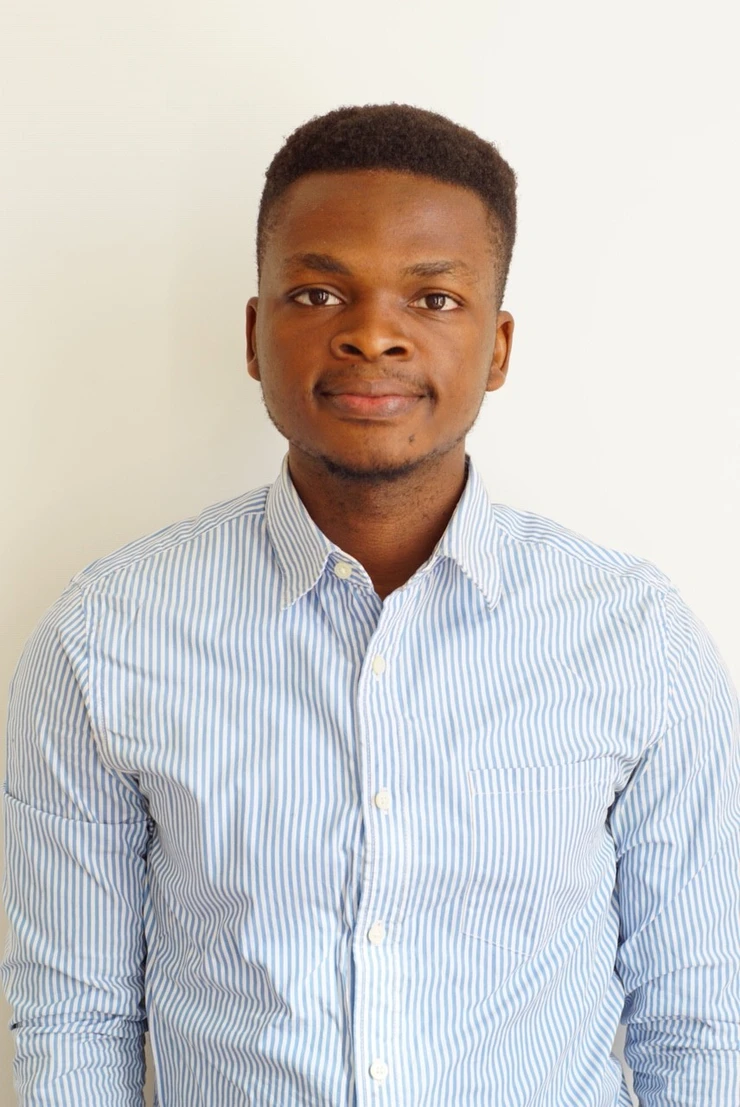How do you excel in writing a master's thesis? Tips from an alumnus

Sushobhan Parida, currently a Doctoral Candidate at the University of Leipzig, is an alumnus of the Willy Brandt School and graduated in 2020, having specialized in Conflict Studies and Management. In this interview with our first year MPP students Oluwatosin Adeagbo and Great Udochi, Sushobhan talks about his research and offers valuable tips on how to proceed with master’s thesis.
Hi Sushobhan. Could you please introduce yourself briefly?
My name is Sushobhan Parida and I am from India. I am currently doing my PhD at the University of Leipzig. My thesis project looks at armed groups and the micro-dynamics of recruitment. I did my master's in Public Policy from the Willy Brandt School from 2018 to 2020, where I specialised in Conflict Management. My background before that was in engineering. I have now made a shift to the social sciences, and have stuck to that decision.
How was your experience at the Brandt School? How did it influence your PhD studies or decision to pursue a PhD?
The Brandt School was the best 2 years of my life. I made a great bunch of friends during my time at the school. I was also able to make a wide range of international friendships. Most importantly, I was able to make my own path without influences and pressures and was doing what I loved. I was passionate about my specialisation area and that played a huge role in making me pursue a PhD.
Can you tell us a little about your PhD studies? Your motivation and challenges.
I am studying how armed groups recruit members and how it happens on a micro level. How does it happen on an individual basis? What are the factors that influence a person to join an armed group? That is essentially the broad topic of my PhD. I intend to do a case study on one of the armed groups in my home country, India.
A challenge that I experienced was deciding the topic of my PhD. Officially, I started in October, but finalized the topic in March. It took me a lot of reading and brainstorming, a long process on its own. That has been the most challenging part so far. The issue of getting funding is the next big step and a puzzle in this journey.
Your topic is quite interesting and I wish you all the best. What are the next steps for you after graduation? Are you considering going into Academia?
Fifty per cent of my motivation to do a PhD stems from the fact that I want to teach, that is one of my goals. I am already offering a few workshops and planning to eventually teach full-time. The long-term plan is getting into academia, but I am not certain if it will be in Germany or elsewhere.
Can you give us a summary of what your master’s thesis was about?
I looked at effective peacebuilding. The title of the thesis and research question was, “what leads to effective peacebuilding?” I used a theoretical lens of local ownership to consider, “how do local people participate in the peacebuilding process?” “How much involvement do they have?” “What conditions lead to effective peacebuilding?” In addition, my case study was on Kosovo and I used QCA methodology to micro level study of peacebuilding missions.
Interesting! Can you give us further insight as to how you selected the topic and your supervisor? When is the best time to start thinking of a topic?
I had done an internship in Kosovo and completed a course before that about the country. I was certain that I wanted Kosovo to feature in my thesis as I had many contacts there. I also had contextual knowledge of the topic. I was also interested in QCA, which is a comparative method for a medium and small number of cases. Therefore, I had two anchor points, QCA and Kosovo.
A study group I was a part of was instrumental in deciding what my thesis will be based on. I discussed the topic selection with my academic mentor and she told me to go ahead with it. She was one of our Conflict Management lecturers, so it was obvious that she was going to be my first supervisor for the thesis. When I knew I was going to do QCA, Dr Mello was an easy choice as the second supervisor.
What are the steps involved in writing a good master’s thesis?
The first important rule is to finalize a topic in an area you are genuinely interested in. Since you will work on the selected topic for a long time, you may feel demotivated sometimes. If your topic is engaging, it keeps you going. If it feels like a chore, you may not produce a good final paper.
The next important point to remember is that your supervisors are there only to guide you and answer your questions. You have to be self-motivated to work on your own. The third point is to be on top of writing your thesis. Don’t leave the drafting till too late as you do not want to write in a state of panic. Start writing while researching, especially because it will help you to stay organised. Also, you can always come back to change what you have written. Seeing that you have written around 8000 words will motivate you to keep going, knowing you have done one-third of the work.
I know people who wrote their thesis in a short time and did it well but the point is to enjoy the process.
You spoke about the importance of having interest in your topic. Can you share any tips that were helpful to you in selecting a topic and research methodology?
Choosing your research topic can be a difficult thing irrespective of how smart, prepared or organised you are. For you to reach the moment where you say, “this is what I want”, it may take some time. By mid-December of my 3rd semester, I already knew what I wanted, but for my PhD, it took me around four to five months to decide. I encourage the students not to be pressurised or anxious if their friends already know what to do. Choosing a topic is an uncertain and important part of your thesis writing, so I advise that you start early. My academic mentor suggested to me at the start of my 3rd semester to start thinking of what I wanted to focus my thesis on. Going through the readings for the compulsory and elective courses could be a good place to start if you do not know what your research interest is.
Regarding methodology, my suggestion is what my supervisor usually advises – try to understand what your research puzzle is. Once you have finalized your research puzzle, you can proceed with the methodology. You do not have to worry about methodology before you decide on your topic.
Did you face any challenges while writing the thesis, particularly due to the pandemic?
Covid-19 was a challenge for all of us. This is the first time we are having virtual classes, and it has been a novel experience. But apart from the pandemic situation, another issue for me was that I chose a research method that was quite hard. QCA was a difficult thing to conquer, and it posed a lot of challenges. I received help from my second supervisor Dr Mello, but it was still a complicated process. I do not regret it as it was something I wanted to do as I had a goal to use it in my work.
Also, students usually struggle with the analysis part as it is challenging to apply the theory. I experienced writer’s block and there were days when I hardly made any progress.
How do you know if your thesis topic has sufficient resources?
The first thing is to do light research on Google Scholar, read the abstract of the papers. It will give you a sense of what is available. Your supervisor plays a great role during this process. It is important to approach them before you decide on the choice of your topic. It helps if you have a supervisor whose research areas align with your research interest.
Can you suggest any resources that helped you in structuring the thesis in a better way or did you undergo any training?
A thesis can be divided into four broad parts, the introduction, the theoretical framework, the analysis, and the conclusion. This, however, can vary based on your thesis. Typically, one can follow this pattern – start with the theoretical framework, followed by the analysis, and then come back to work on your introduction and conclusion.
The advantage of defining a theoretical framework first is that you can do a lot of reading during the process. I had written about 8000 words by the end of my theoretical framework. Having 8000 words helps you work with less anxiety.
Talking about tools, I will suggest that every Brandt School student start using free referencing software like Zotero, Endnote, etc. It definitely made my life easier. As I consumed the literature, Zotero helped me to make the structure for my thesis. If you do not want to use Excel, there are other tools available such as R, Stata, etc, but these are secondary. The most important is the referencing software and there are free tutorial clips on YouTube on how to use them.
Do you think the thesis’ topic influences the chance of getting a position in the job market?
It can, in multiple ways. You can write your thesis with an organization, and that gives you a lot of leeway to get a job or an internship. Also, when you conduct a lot of interviews for your thesis, it helps you build a network. However, I want to reiterate that getting a job or getting something as an outcome of your thesis should not be the motivation behind choosing a topic. The odds are low; the probability of getting a job only because of a master’s thesis is little.
Any tips on managing one's time effectively to meet deadlines? Did you have targets?
My supervisor played a huge role in time management as she pushed me to have an organized schedule. Always keep in mind that you may have 10-15 days of extremely productive work and then weeks of not-so-productive work. You need to factor in this and be realistic when setting a schedule as your rate of doing tasks will change a lot with the progress of time. When it comes to time management, I think you should have a goal of trying to be productive every day. It may not happen, but if you aim for that, you will achieve at least 50% of your goal. You should keep a target of maybe writing 500/800 words every month, you may eventually have to remove or change some parts. It helps to have your ideas on paper so that when you read them, you will know what arguments you need to include or take out.
Do you have any general tips for second year students?
If you have problems, consult with your supervisor in a sensible and clear way. Explain what the problem is and make suggestions on what you are thinking can be a way out. For instance, “I am stuck, I don’t know if I should a or b”. I found it helpful to have a small study group; we met weekly. The students in a study group may have answers to your questions and expressing your thoughts could give you more clarity.
It has been an insightful session with you; we appreciate all your responses and insight!

About the interviewers
Oluwatosin Adeagbo is a first year MPP student at the Willy Brandt School, specializing in Social Entrepreneurship & Non-Profit Management and International & Global Public Policy. She holds a Bachelor's degree in Law from the University of Ibadan, Nigeria, and has been working in the Corporate and Commercial Law space in Nigeria for three years before joining the Brandt School. She specializes in Corporate Governance and Business Advisory.

Great Udochi is a first-year MPP candidate at the Willy Brandt School, specializing in socio-economic development policies and international/global public policy. He holds a bachelor’s degree in Philosophy from the University of Uyo, Nigeria, and has over two years of experience working in Nigeria’s non-profit sector.
~ The views represented in this blog post do not necessarily represent those of the Brandt School. ~